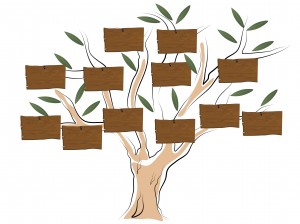A new qualitative research study on child abandonment and adoption in the context of African ancestral beliefs in contemporary urban South Africa was released today by the National Adoption Coalition South Africa (NACSA) ahead of Child Protection Week.
Growing social crisis of child abandonment
The research undertaken by Dee Blackie, a consultant to the National Adoption Coalition of SA, is the result of an intensive, 1-year long research project that will provide NACSA with the understanding and insights needed to address the growing social crisis of child abandonment and declining adoption rates in South Africa.
Blackie’s fieldwork, conducted from March 2013 to February 2014, involved in-depth interviews and participant observation with young women experiencing unplanned pregnancy, women who had been apprehended for abandoning their children, community members, police officers, nurses and social workers, baby home managers and caregivers, adoption social workers, foster care and adoptive parents, psychologists and psychiatrists, legal experts, traditional healers and abandoned children (predominantly in Alexandra, Soweto and Tembisa).
Little understanding of the alarming social change
“Child abandonment continues to rise in South Africa, but there is little to no understanding of this alarming social challenge. This together with the increasing numbers of orphans due to the HIV/AIDS pandemic is placing extreme pressure on temporary care solutions such as children’s homes and foster care.
Adoptions have decreased by more than 50% over the past decade with research indicating that much of the decline is due to the implementation of the new Children’s Act in 2010 and what has been referred to as ‘cultural barriers’,” says Dee Blackie.
A number of challenges
Contemporary South Africa has a number of the challenges associated with child abandonment including restrictive legislation, high levels of poverty, mass urbanisation and migrant labour, high levels of violence especially rape, gender inequality and diminishing family support. All of these issues lead to the increasing vulnerability of young women in the urban environment and can result in child abandonment as a ‘survival strategy’ on the discovery of an unplanned and unwanted pregnancy.
Ancestral beliefs an influence
Blackie’s research found that both child abandonment and the decline in adoption are influenced by indigenous African ancestral beliefs. She found that some mothers and community members believe that, in the eyes of their ancestors, to abandon a child is better than formally relinquishing their rights as parents so that the child can be adopted.
The research found that ancestral beliefs play a significant role in child abandonment in South Africa.
“Formally placing a child up for adoption is seen as a conscious act, and similar to the choice of abortion, amounts to the rejecting a gift that the ancestors have given you. Many young women believe that the punishment for doing this could be extreme suffering and bad luck and in some cases, they believe they may even be rendered infertile as a result of their actions. Other circumstances such as depression, high levels of stress possibly due to how the child was conceived such as rape, or that she had been abandoned herself by the father of the child or her own family, which is often the case, are often contributing reasons for abandoning the baby. In this instance, the mother can then sacrifice something to call her ancestors, and then when they appear, apologise to them at which point they could choose to forgive her,” explains Blackie.
Unknown ancestry to cause problems
“Adoption is also viewed with great concern as bringing a child with an unknown ancestry into a family is thought to cause problems for both the adoptive family and the child. Most research respondents believe that a child who does not know their ancestors – the decedents of their father’s line – will live a difficult life and may also not be able to fulfil many of their traditional roles and rituals in their family. These include paying damages for a child, paying lebola (to get married), celebrating big milestones such as matriculating, graduating or getting a new job. Ancestors are also important for guidance and support, for understanding where illness may come from, and assisting a person in making important life decisions. ”
“Many black adoptive parents choose not to disclose that their children are adopted for fear of rejection from their extended family or community. However, if this is discovered later on in life, it can cause high levels of trauma for the abandoned child” adds Blackie.
Solving the issue at a community level
But the research also revealed that despite the negative perceptions of adoption, all of the sangomas (traditional healers) interviewed confirmed that they could assist a child who has been abandoned to find their ancestors. They can also help a family who chooses to adopt a child, through a process called ‘ubigile’ or the announcing of the child to the ancestors.
“The sangomas believe that despite child abandonment being increasingly associated with postpartum depression and post-traumatic stress syndrome, the only way to solve this issue is to fix it at a family and community level, rather than through the medication and counselling of the individual mother or child,” adds Blackie.
Research to inform initiatives
The comprehensive research will inform a number of initiatives planned by the National Adoption Coalition in their attempt to curb this growing social crisis.
Pam Wilson, spokesperson for NACSA adds: “Getting to the heart of cultural and ancestral beliefs is crucial if we are to address this challenge by understanding the reasons behind high levels of abandonment and declining adoptions. It will inform and shape our messaging and approach, particularly as we are about to embark on a campaign specifically aimed at unplanned pregnancy and helping families to support the young women in their homes. The research information will also be used to expand on the Coalition’s Community Engagement Programme specifically around option counselling for unplanned pregnancy to help young pregnant mothers to make informed decisions. Finally, in support of the call by sangomas and traditional leaders, this year’s adoption conference planned for October, will focus on trying to find more culturally relevant approaches to adoption and otherchild protection strategies,” says Wilson.
During Child Protection Week 2014, the National Adoption Coalition will focus on the insights revealed from the research and use this as a basis to inform its actions going forward around the plight of South Africa’s adoptable children and provide accurate process information to birth and prospective adoptive parents, particularly around the issues of ancestry and cultural beliefs in South Africa.
For more information on the National Adoption Coalition call 0800 864 6580800 864 658 or go to www.adoptioncoalitionsa.org
Latest posts by Contributor (see all)
- Study: Vaccines have a low risk of serious side effects - July 2, 2014
- Toddler development: The benefits of reading - July 2, 2014
- Video: How much sleep does your baby need? - July 1, 2014








 Saving...
Saving...